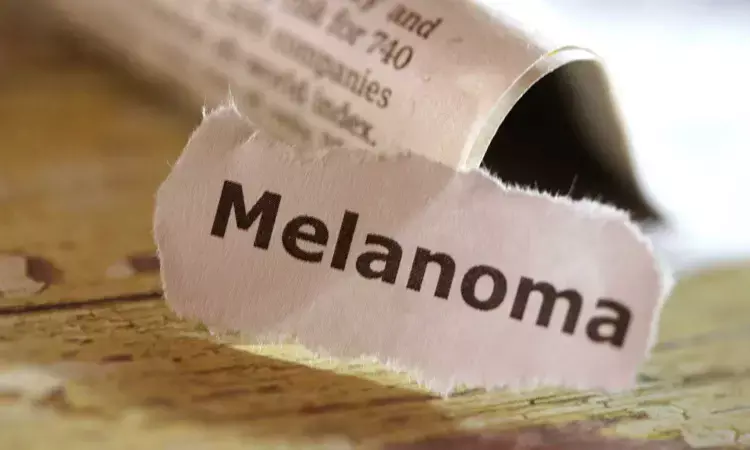- Home
- Medical news & Guidelines
- Anesthesiology
- Cardiology and CTVS
- Critical Care
- Dentistry
- Dermatology
- Diabetes and Endocrinology
- ENT
- Gastroenterology
- Medicine
- Nephrology
- Neurology
- Obstretics-Gynaecology
- Oncology
- Ophthalmology
- Orthopaedics
- Pediatrics-Neonatology
- Psychiatry
- Pulmonology
- Radiology
- Surgery
- Urology
- Laboratory Medicine
- Diet
- Nursing
- Paramedical
- Physiotherapy
- Health news
- Fact Check
- Bone Health Fact Check
- Brain Health Fact Check
- Cancer Related Fact Check
- Child Care Fact Check
- Dental and oral health fact check
- Diabetes and metabolic health fact check
- Diet and Nutrition Fact Check
- Eye and ENT Care Fact Check
- Fitness fact check
- Gut health fact check
- Heart health fact check
- Kidney health fact check
- Medical education fact check
- Men's health fact check
- Respiratory fact check
- Skin and hair care fact check
- Vaccine and Immunization fact check
- Women's health fact check
- AYUSH
- State News
- Andaman and Nicobar Islands
- Andhra Pradesh
- Arunachal Pradesh
- Assam
- Bihar
- Chandigarh
- Chattisgarh
- Dadra and Nagar Haveli
- Daman and Diu
- Delhi
- Goa
- Gujarat
- Haryana
- Himachal Pradesh
- Jammu & Kashmir
- Jharkhand
- Karnataka
- Kerala
- Ladakh
- Lakshadweep
- Madhya Pradesh
- Maharashtra
- Manipur
- Meghalaya
- Mizoram
- Nagaland
- Odisha
- Puducherry
- Punjab
- Rajasthan
- Sikkim
- Tamil Nadu
- Telangana
- Tripura
- Uttar Pradesh
- Uttrakhand
- West Bengal
- Medical Education
- Industry
Desmoplastic melanoma patients respond "exceptionally" well to treatment with immunotherapy alone

USA: A recent study has suggested that many patients with desmoplastic melanoma could avoid the risk of toxicity from combination therapies and achieve cancer control with immunotherapy (pembrolizumab) alone.
Data from a national clinical trial revealed that a striking 89% of patients with desmoplastic melanoma responded to this approach to treatment. The findings were presented at the American Association for Cancer Research 2023 annual meeting on Sunday, April 16, by Kari Kendra, a medical oncologist who specializes in the treatment of melanoma at The Ohio State University Comprehensive Cancer Center – Arthur G. James Cancer Hospital and Richard J. Solove Research Institute (OSUCCC – James.
Desmoplastic melanoma is a subset of melanoma skin cancer caused by high levels of ultraviolet (UV) radiation damage and, therefore, many tumour mutations that all contribute to aggressive disease development and growth.
“Not all melanomas are the same, and they don’t respond to treatments to the same degree. Identifying the best treatment strategies for these unique patients can improve outcomes, our continual goal,” said study principal investigator Dr. Kendra. “This study makes us truly question whether combination therapy is necessary for these patients, and it presents important knowledge that could help us further tailor treatment based on characteristics of the patient’s unique tumour and reduce the potential for toxicity from combination therapies.”
In this SWOG Cancer Research Network-sponsored study, researchers previously reported results on Cohort A in which recruitment of 30 patients with resectable melanoma treated with three cycles of pembrolizumab (pronounced pem-bro-LIH-zoo-mab, marketed as Keytruda) resulting in a pathologic complete response rate of 55% – meaning there was no evidence of disease after treatment. Here the researchers report the findings for Cohort B, treatment of those with unresectable disease with pembrolizumab. Twenty-seven patients with desmoplastic melanoma that could not be treated with surgery were recruited. Of the participating patients, 89% had a favorable treatment response to single-agent immunotherapy treatment with pembrolizumab and 33% had complete response.
“With responses this high with single-agent pembrolizumab, combination therapy – with its increased potential for toxicity– is not needed as first-line therapy for patients with unresectable desmoplastic melanoma,” says Dr. Kendra, also a researcher with the Pelotonia Institute for Immuno-Oncology and professor at The Ohio State University College of Medicine. “Many advances in the treatment of melanoma have resulted in improvement in overall survival. There are many treatment options available. Now our focus is on how we decide the best approach for each given patient.”
Dr Kamal Kant Kohli-MBBS, DTCD- a chest specialist with more than 30 years of practice and a flair for writing clinical articles, Dr Kamal Kant Kohli joined Medical Dialogues as a Chief Editor of Medical News. Besides writing articles, as an editor, he proofreads and verifies all the medical content published on Medical Dialogues including those coming from journals, studies,medical conferences,guidelines etc. Email: drkohli@medicaldialogues.in. Contact no. 011-43720751


